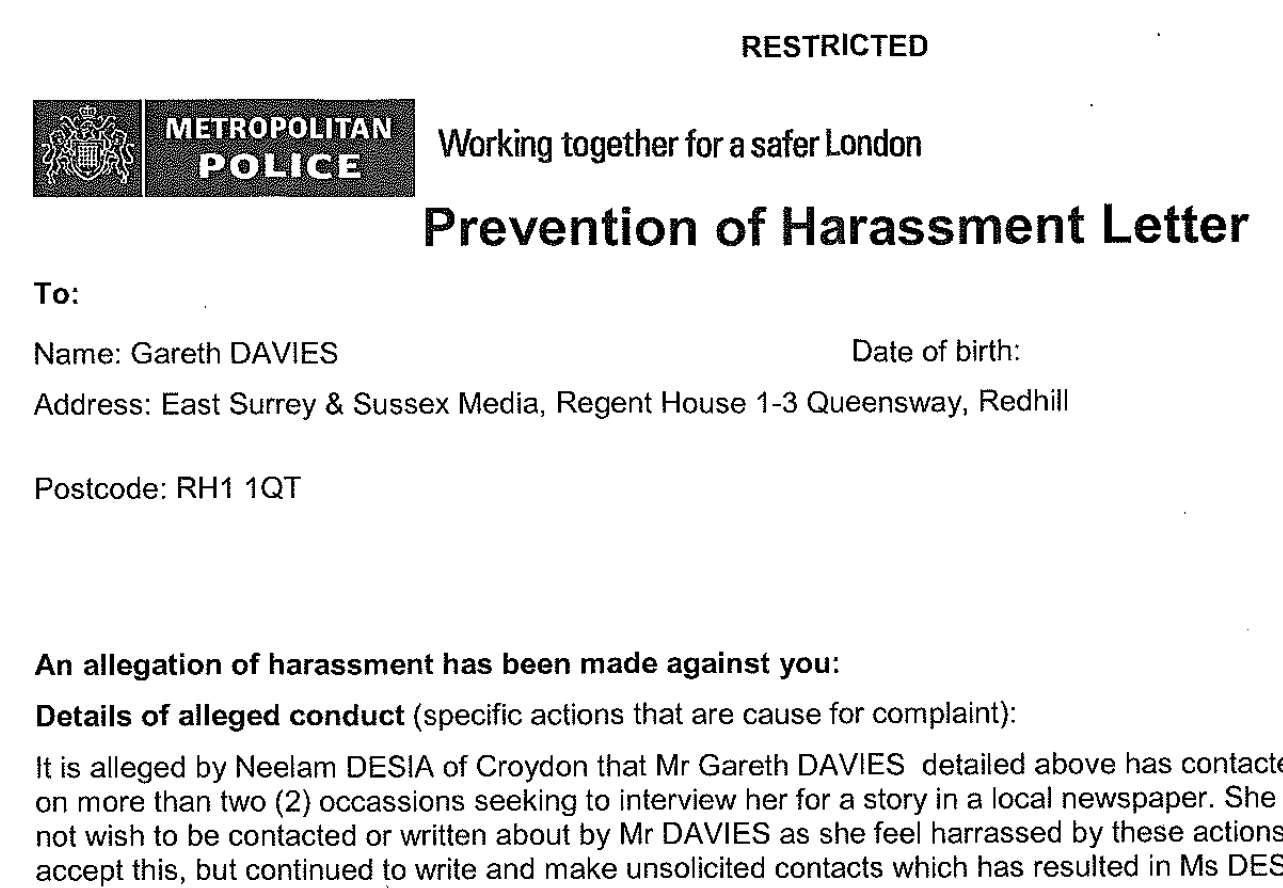
Journalists covering the Newcastle sex grooming trial have been warned that they will be issued with a harassment warning if they contact any of the many victims in the case.
Croydon Advertiser journalist Gareth Davies was issued with such a warning letter (pictured above), known as a Police Information Notice, in 2014 after making legitimate enquiries with a convicted fraudster.
Such notices are kept on file by police forces and could come up in an enhanced criminal records check. Davies eventually got his PIN rescinded after a two-year legal battle with the Met Police.
Seventeen men and one woman were convicted of involvement in a sex grooming network involving 20 victims on Wednesday.
The same day, Northumbria Police issued the following warning to journalists: “Despite issuing two notes to media requesting journalists do not directly contact victims we are aware that some media are still continuing to do this and have provided them with an update from court.
“We would like to make it clear that we are incredibly concerned this is having a damaging effect on the victims and has the potential to cause them psychological harm.
“If we become aware any further approaches are made by journalists to contact victims and they have been previously asked to stop that journalist will be served with a harassment notice.”
Some journalists have now told their newsdesks that they can’t approach the victims because of the harassment notice threat. Such notices cannot be appealed and are believed to be kept on file permanently.
The offences happened between 2011 and 2014 and involved females aged between 13 and 25. There are believed to be upwards of 100 potential victims.
The actions of the police have attracted criticism after it emerged that they paid a convicted rapist £9,680 for information as part of the investigation.
Press Gazette understands that two general warnings were issued by police asking journalists not to approach the victims before the harassment warning was made.
One journalist who covers the North East told Press Gazette: “There is huge public interest in speaking to these girls. They may very well want to tell their stories.”
They added that the victims may want to make criticisms of the way the authorities have dealt with the inquiry, but they also acknowledged that they were vulnerable individuals who should be protected from a “press pack” style scenario.
A Northumbria Police spokesperson said: “Any victim may choose to speak to the media, however where the victim has informed police they have been contacted by the media and this contact is not wanted it is appropriate for us to issue an harassment warning if that contact persists.
“Media directly contacting victims in Operation Sanctuary has had a damaging effect on them, causing distress and harm to their well-being. Despite issuing two notices asking media not to contact victims directly journalists continued to make direct contact.
“It was decided due to the damaging effect the actions of the media were having on the victims that an harassment warning would be issued where appropriate in order to protect these very vulnerable women and girls – none of who wish to speak to the media.
“We know media have requested, through us, to speak to victims and these have not been ignored. If and when a victim does wish to tell their story we will facilitate this.
“We understand the benefits of victims speaking to the media, however, this will be done in a managed way to ensure the victim is fully supported and any further unnecessary distress is minimised.”
Email pged@pressgazette.co.uk to point out mistakes, provide story tips or send in a letter for publication on our "Letters Page" blog
